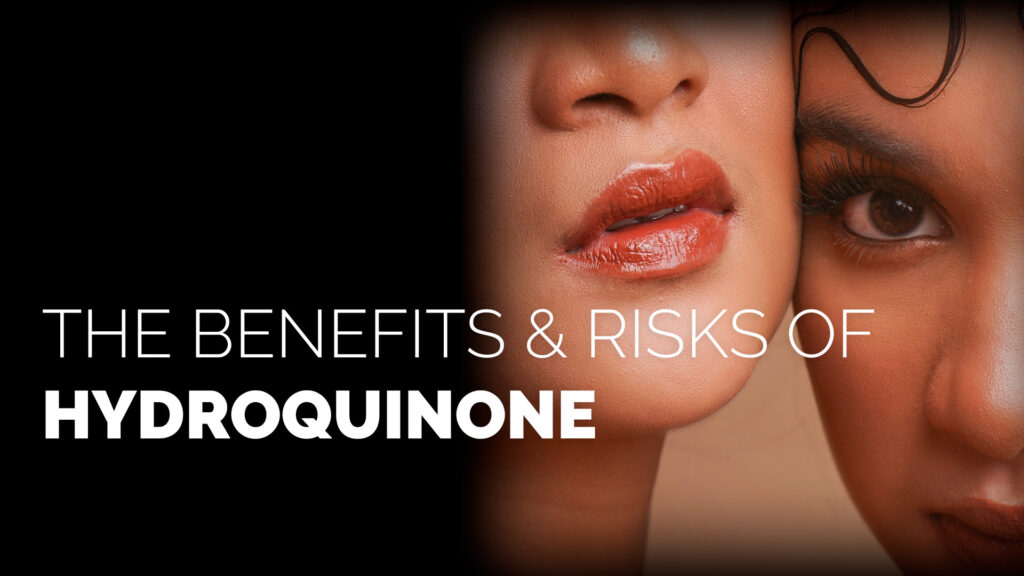
Hydroquinone is a popular skin lightening ingredient found in many cosmetic products, but it has been a subject of concern for its potential dangers. In this blog, we’ll explore the scientific evidence behind the dangers of hydroquinone and why it should be used with caution.
Hydroquinone is a skin lightening ingredient that is commonly used to reduce the appearance of dark spots and hyperpigmentation. It works by inhibiting the production of melanin, the pigment responsible for skin color. Hydroquinone is available in over-the-counter and prescription-strength products.
Hydroquinone has been linked to a number of potential dangers, including skin irritation, ochronosis, and cancer.
Studies have shown that hydroquinone can cause skin irritation and ochronosis, and there is some evidence to suggest that it may be linked to cancer. In a study published in the Journal of the American Academy of Dermatology, researchers found that hydroquinone use was associated with skin irritation in over half of the patients studied.
Another study, published in the Journal of the European Academy of Dermatology and Venereology, found that hydroquinone use was associated with ochronosis in 2.6% of patients.
In conclusion, hydroquinone is a popular skin lightening ingredient, but it should be used with caution. Scientific evidence has shown that hydroquinone can cause skin irritation, ochronosis, and may be linked to cancer. If you are considering using hydroquinone, it is important to talk to your healthcare provider about the potential risks and to use the product as directed.